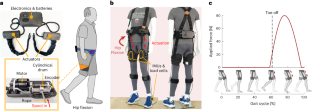2024-01-05 米国国立再生可能エネルギー研究所(NREL)
◆従来の広葉樹の二次細胞壁のセルロース、ヘミセルロース、リグニンの配置についての詳細な理解が難しい課題に対し、高性能な固体核磁気共鳴(ssNMR)技術を使用しました。この手法により、バイオマス分解において難解なリグニンの役割について洞察が深まり、効率的な分解手法やバイオベースの材料の開発に寄与する可能性があります。
<関連情報>
- https://www.nrel.gov/news/program/2024/nrel-researchers-produce-first-macromolecular-model-of-plant-secondary-cell-wall.html
- https://www.science.org/doi/10.1126/sciadv.adi7965
固体NMRから得られたポピュラス二次細胞壁の原子論的高分子モデル Atomistic, macromolecular model of the Populus secondary cell wall informed by solid-state NMR
Bennett Addison,Lintao Bu,Vivek Bharadwaj,Meagan F. Crowley,Anne E. Harman-Ware,Michael F. Crowley,Yannick J. Bomble,and Peter N. Ciesielski
Science Advances Published:3 Jan 2024
DOI:https://doi.org/10.1126/sciadv.adi7965

Abstract
Plant secondary cell walls (SCWs) are composed of a heterogeneous interplay of three major biopolymers: cellulose, hemicelluloses, and lignin. Details regarding specific intermolecular interactions and higher-order architecture of the SCW superstructure remain ambiguous. Here, we use solid-state nuclear magnetic resonance (ssNMR) measurements to infer refined details about the structural configuration, intermolecular interactions, and relative proximity of all three major biopolymers within air-dried Populus wood. To enhance the utility of these findings and enable evaluation of hypotheses in a physics-based environment in silico, the NMR observables are articulated into an atomistic, macromolecular model for biopolymer assemblies within the plant SCW. Through molecular dynamics simulation, we quantitatively evaluate several variations of atomistic models to determine structural details that are corroborated by ssNMR measurements.


